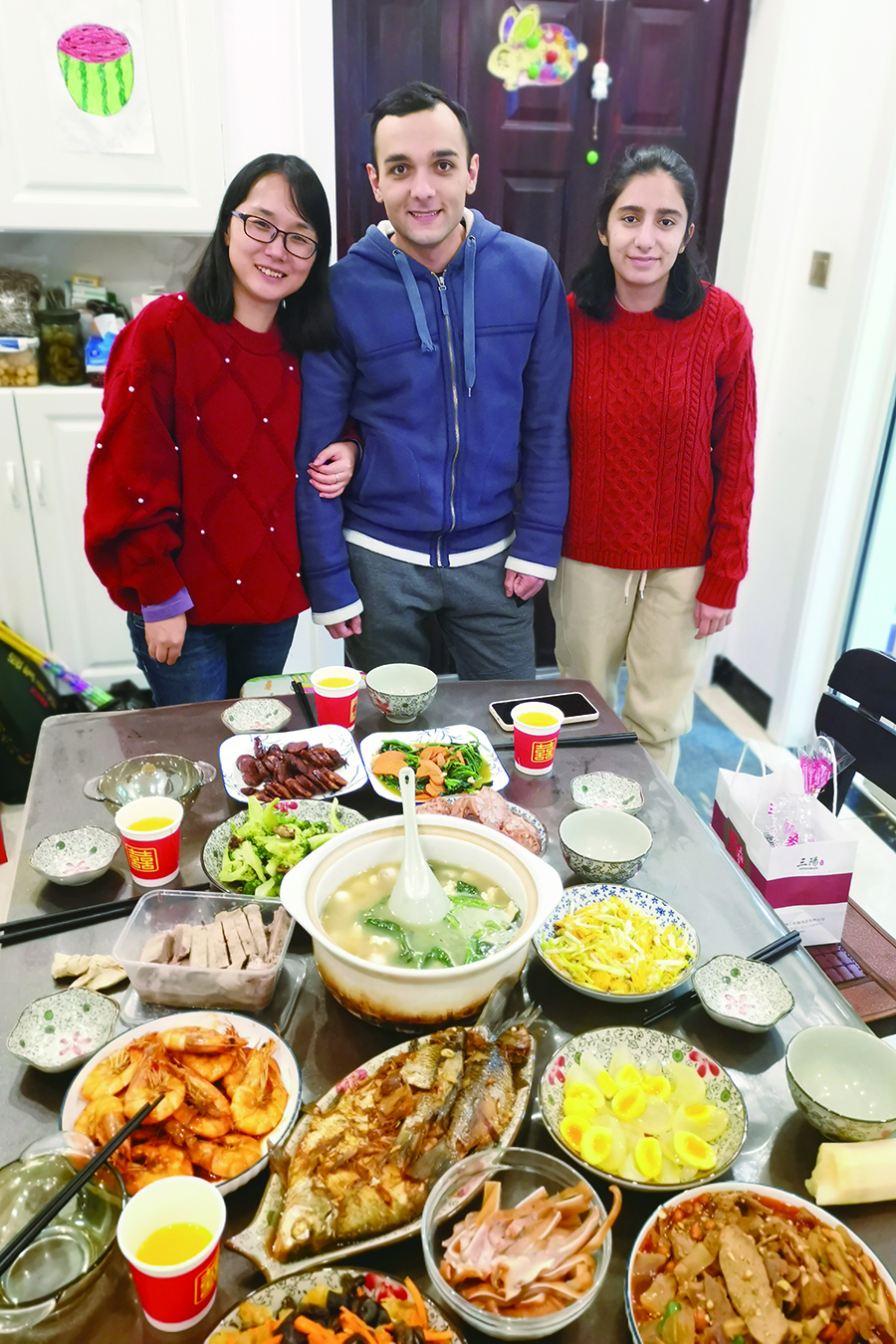

I believe that most people — both Chinese learners and non-Chinese learners — must have heard about the magical Chinese New Year. As someone who started learning Chinese at the age of 11, I remember that in all the China-related materials that I could get my hands on — from textbooks to films — the Chinese New Year has always been mentioned as one of the most important elements. So ever since those early days, spending a Chinese New Year in China has been on my wish list. And it finally became a reality at the beginning of this year.
What I was anticipating most about the festival was its warmth as I had learned that it's the time of year when family members travel across the country — or even the world — to return to their homes to reunite with their loved ones. Even though I don't have family in China, I have the next best thing — my Chinese teacher Huang Li — who invited me to her home for the festival.
To me, she is every bit of family. She was my very first Chinese teacher — and also my younger brother's — back in 2014 at the Confucius Institute in Baku, the capital of Azerbaijan. Being so warm and kind, she has always been there for me and has encouraged me to keep learning Chinese over the past almost 10 years.
So I was really excited to have the chance to celebrate the Spring Festival with her in her hometown in Huaibei, Anhui province.
On my way from Shanghai to Huaibei by high-speed train, I could already feel the festive atmosphere: People working or studying in Shanghai were excitedly on their way home, all taking gifts for their family. There is even a term in Chinese — chunyun, which means "Spring Festival travel rush" — that's used to describe the 40-day travel period when the world's largest annual migration takes place here in China.
After arriving on the Spring Festival Eve, we immediately started preparing for the evening's festivities. I changed into a red sweater because red is the traditional color of the festival and is believed by Chinese people to be an auspicious color. By the way, here is an interesting fact: If this year is "your year" according to the Chinese zodiac, you should definitely wear something red to protect yourself from bad luck.
When the evening started, we first ate nianyefan, or Spring Festival Eve dinner, which is the most important and lavish dinner of the entire year.
Shortly after the dinner, at 8 o'clock sharp, the chunwan, or Spring Festival Gala, started airing on TV. The show lasts for five hours with a variety of performances, including singing, dancing, a magic show and comedies. My favorite part was the comedies. Thanks to my longtime Chinese learning and, of course, my teacher Ms Huang, I could fully understand the comedies, even if they say that humor is the hardest thing to understand in cross-cultural exchanges.
While watching the gala, Ms Huang started another traditional activity: handing out red envelopes — yes, again, they're red. She would prepare the red envelopes with some money inside and, according to Chinese traditions, we needed to say words of good fortune like "I wish you a healthy and happy year "in exchange for the envelopes.
The envelope I received had 200 yuan in it!
Afterward, we went to a park nearby to set off firecrackers, which is also an important part of the Spring Festival celebration because Chinese people traditionally believe that loud noises can scare off bad spirits. I saw lots of people — children and adults — come to the park to watch others set off fireworks. Just seeing the splendor of the bright and colorful firecrackers was festive enough.